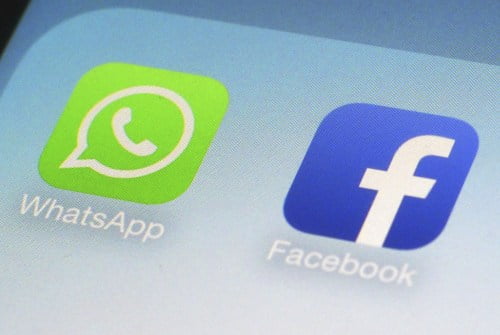

Daniel Lubetzky, the son of a Holocaust survivor, has sought to build bridges among people in conflict throughout his career as a businessman and philanthropist. So when Lubetzky, the chief executive of KIND snacks, wanted to do something to mend the fractured country after the presidential election, he turned to one of the places where people are most divided — social media.
Donald Trump’s surprise victory cast a spotlight on the so-called social media bubbles where people increasingly get their news and share views every day. During the campaign, many people said they rarely heard from people with opposing views — leaving a nation divided and half of it confused the morning after the election.
Now the KIND Foundation is trying to bring more diversity to Facebook feeds – so people can try to understand each other better. Its “Pop Your Bubble” tool, which launches Tuesday, matches Facebook users with at least 10 people who have a different political perspective, and who live in another part of the country or represent a different generation.
The tool is one of several that have appeared in recent months to help social media users become more exposed to other perspectives. Flip Feed, a chrome extension designed my MIT researchers, allows people to see what a Twitter feed looks like for someone with different political leanings. And Escape your Bubble, also a Chrome extension, inserts posts in your Facebook feed with a news article representing a differing political perspective. The posts are deliberately upbeat and friendly, intended to contrast with the way opposing viewpoints often are presented on-line, via argumentative comments.
“Instead of seeking out information, we seek affirmation,” Lubetzky said. “If we are going to be the United States of America, we need to be comfortable listening to others and engaging in a conversation and understanding one another.”
Social media sites magnify what is already one of the most basic human instincts – to seek out people who are similar and to avoid those who are different, said Robb Willer, a social psychologist at Stanford University. “It’s one of the most robust findings in the history of social sciences,” he said.
In a virtual world, you can add someone to your social network or shut yourself off from things you don’t want to hear with the click of the button. Algorithms beneath social media platforms perpetuate this tendency by prioritizing content in your feed that reflects the posts or organizations that you already “like” or share.
The result, many say, is a distorted sense of reality, an echo chamber. Infusing that echo chamber with voices from the outside can help people challenge their views and even become aware of disinformation or misinformation that they don’t realize other people are hearing.
It can also turn the heat down on the emotional aspect of political sparring, Simms said. “It’s easy to hate someone you have never interacted with directly,” he said.
Amid the political chasm, there is growing desire for connection. Alarmed by the the divisive state of the country, Americans are inviting strangers for dinner and seeking out conversations with people online.
With Pop Your Bubble, people can sign up to “follow” others, and they can also volunteer to share their posts. To share, users need to make their profile public. (Though the designers said it’s possible to keep individual posts private, viewable only by “friends.”)
It’s unclear what will happen once connections are made, whether they lead to debates or discussions or, left unattended, simply fall off people’s Facebook feeds.
“That’s where it gets interesting,” said Elle Lanning, chief of staff and senior vice president of corporate development at Kind Healthy Snacks. “My hope is that people who raise their hands to participate come with a curiosity and somewhat of an openness.”
Lubetzky grew up in a Jewish community in Mexico, where his father eventually immigrated after he was freed from a Nazi concentration camp in Germany. His family came to the United States when Lubetzky was a teenager and settled in San Antonio, Texas. There, he went to a diverse high school, and remembers from the beginning he resisted being put into any group, but rather enjoyed time spent with everyone.
Before he founded KIND, his most successful enterprise, he started a company called PeaceWorks, which sells goods created jointly by people living in conflict zones. Tapenades, for example, are produced by Israeli and Arabs working together with products grown or manufactured in Palestinian villages, Turkey, Egypt and Israel. Another company, Maiyet sells high-end clothes designed by artisans in developing economies. His philanthropy has focused largely on countering extremism and promoting peace in the Middle East and other conflict regions. He founded the One Voice movement, which aims to promote moderate voices in the Arab-Israeli conflict.
As he built his career, he kept empathy as a central goal. Finding ways to connect with people and developing empathy can help people succeed in their personal lives and in the business world and beyond, he said.
Since the election, people have developed a caricature of a prototypical Trump or Hillary Clinton supporter, he said. The reality is much more complex.
“Most people see themselves as mothers and fathers and parents and children and lawyers and doctors and lovers of movies,” he said.
You just have to get outside the bubble.
[Source:-denverpost.]
